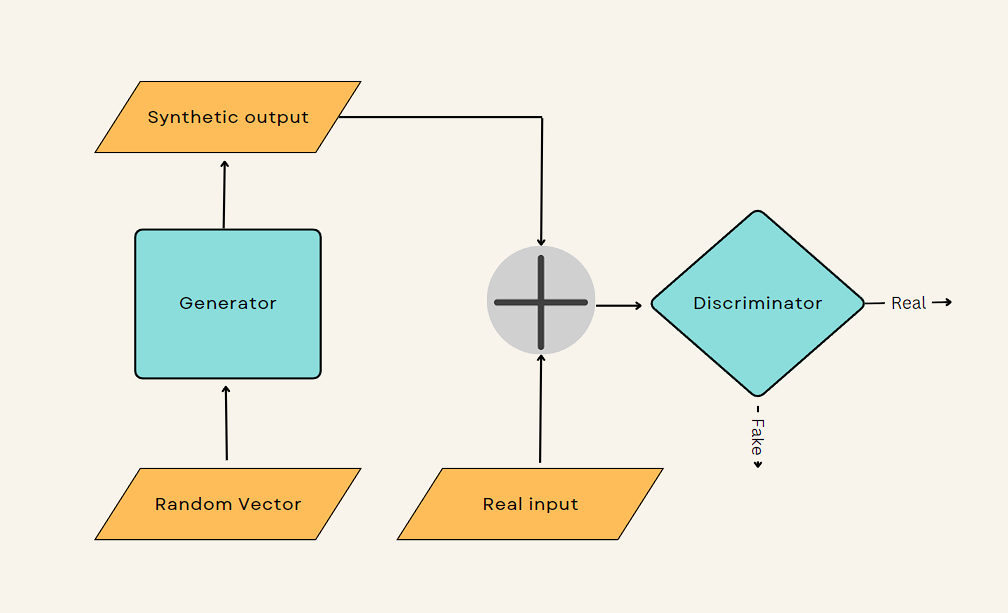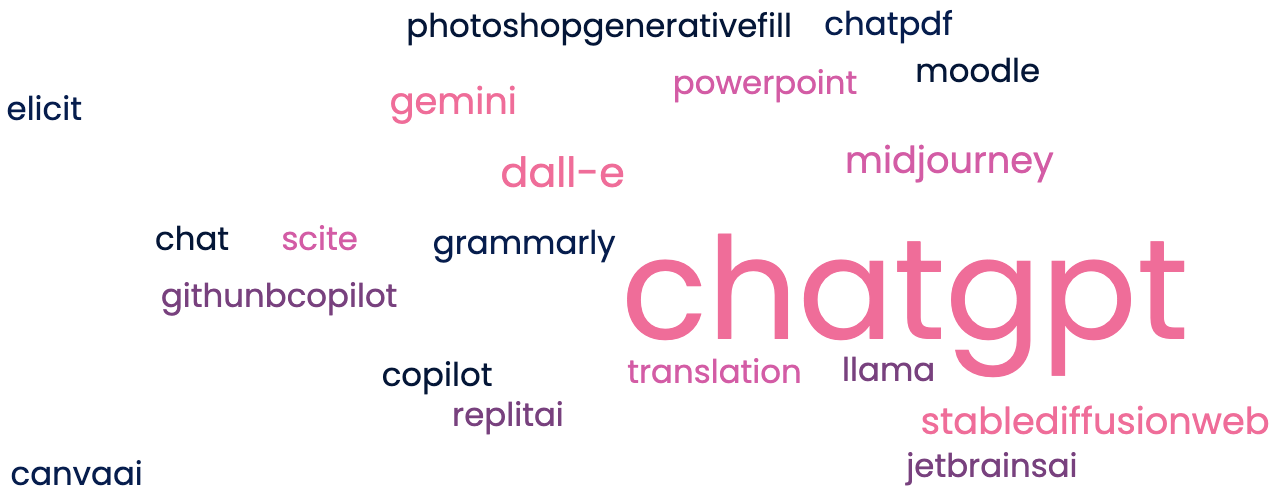A Systematic Review of Generative AI for Teaching and Learning Practice
2406.09520

0
0
🤖
Abstract
The use of generative artificial intelligence (GenAI) in academia is a subjective and hotly debated topic. Currently, there are no agreed guidelines towards the usage of GenAI systems in higher education (HE) and, thus, it is still unclear how to make effective use of the technology for teaching and learning practice. This paper provides an overview of the current state of research on GenAI for teaching and learning in HE. To this end, this study conducted a systematic review of relevant studies indexed by Scopus, using the preferred reporting items for systematic reviews and meta-analyses (PRISMA) guidelines. The search criteria revealed a total of 625 research papers, of which 355 met the final inclusion criteria. The findings from the review showed the current state and the future trends in documents, citations, document sources/authors, keywords, and co-authorship. The research gaps identified suggest that while some authors have looked at understanding the detection of AI-generated text, it may be beneficial to understand how GenAI can be incorporated into supporting the educational curriculum for assessments, teaching, and learning delivery. Furthermore, there is a need for additional interdisciplinary, multidimensional studies in HE through collaboration. This will strengthen the awareness and understanding of students, tutors, and other stakeholders, which will be instrumental in formulating guidelines, frameworks, and policies for GenAI usage.
Create account to get full access
Overview
- The paper explores the use of generative artificial intelligence (GenAI) in higher education (HE)
- It conducts a systematic review of research on using GenAI for teaching and learning in HE
- The review covers the current state of research, future trends, and research gaps in this area
Plain English Explanation
Generative AI is a type of artificial intelligence that can create new content, like text or images. The use of GenAI in universities and colleges is a controversial topic with no agreed-upon guidelines. This paper reviews the current research on how GenAI is being used for teaching and learning in higher education.
The researchers systematically reviewed relevant studies published in the Scopus database, following the PRISMA guidelines. They found 625 research papers, of which 355 met the inclusion criteria for the review.
The findings show the current state of research and future trends in areas like the number of publications, citations, sources, keywords, and collaborations between researchers. The review also identified research gaps, suggesting that while some work has looked at detecting AI-generated text, there's a need to understand how GenAI can be used to support the curriculum, assessments, teaching, and learning delivery. Additional interdisciplinary and multi-faceted studies are also needed to help students, teachers, and other stakeholders better understand and develop guidelines for using GenAI in education.
Technical Explanation
The researchers conducted a systematic review of the literature on the use of generative artificial intelligence (GenAI) in higher education (HE) teaching and learning practices. They followed the PRISMA guidelines to search the Scopus database, which yielded 625 relevant research papers. After applying the inclusion criteria, 355 papers were selected for the final review.
The analysis looked at various bibliometric indicators, such as the number of publications over time, citation patterns, document sources, author keywords, and co-authorship networks. This provided an overview of the current state of research and emerging trends in this field.
The key findings suggest that while some work has focused on detecting AI-generated text, there is a need to understand how GenAI can be integrated into supporting the educational curriculum, assessments, teaching, and learning delivery. The review also highlighted the need for more interdisciplinary, multidimensional studies that involve collaboration between researchers to strengthen the awareness and understanding of GenAI among students, tutors, and other stakeholders. This will be crucial in developing guidelines, frameworks, and policies for the effective and responsible use of GenAI in higher education.
Critical Analysis
The paper provides a comprehensive overview of the current research landscape on the use of generative AI in higher education. However, it also highlights several important research gaps that warrant further investigation.
One key limitation is the focus on only the Scopus database, which may have excluded relevant studies published in other outlets. Additionally, the review did not delve into the specific ways in which GenAI is being used or the impact it has on teaching and learning outcomes. More in-depth case studies and empirical studies would be needed to fully understand the practical implications of GenAI in higher education.
The paper also does not address potential ethical concerns or risks associated with the use of GenAI, such as issues of academic integrity, bias, or privacy. [As the evolution of learning and assessing the impact of GenAI continues, it will be crucial for future research to consider these important considerations.
Overall, the paper provides a valuable starting point for understanding the current state of research, but more comprehensive and interdisciplinary studies are needed to guide the responsible and effective integration of generative AI in higher education.
Conclusion
This systematic review offers a comprehensive overview of the current research on the use of generative artificial intelligence (GenAI) in higher education (HE) teaching and learning practices. The findings highlight the need for more interdisciplinary, multidimensional studies to strengthen the awareness and understanding of GenAI among students, teachers, and other stakeholders.
While some work has focused on detecting AI-generated text, the review identifies a research gap in understanding how GenAI can be effectively integrated into the educational curriculum, assessments, teaching, and learning delivery. Addressing this gap through collaborative research will be instrumental in developing guidelines, frameworks, and policies for the responsible use of GenAI in higher education.
As the evolution of learning and assessing the transformative impact of GenAI continues, it will be crucial for future research to consider the ethical implications and potential risks associated with the use of this technology in academic settings.
This summary was produced with help from an AI and may contain inaccuracies - check out the links to read the original source documents!
Related Papers

Generative Artificial Intelligence: A Systematic Review and Applications
Sandeep Singh Sengar, Affan Bin Hasan, Sanjay Kumar, Fiona Carroll

0
0
In recent years, the study of artificial intelligence (AI) has undergone a paradigm shift. This has been propelled by the groundbreaking capabilities of generative models both in supervised and unsupervised learning scenarios. Generative AI has shown state-of-the-art performance in solving perplexing real-world conundrums in fields such as image translation, medical diagnostics, textual imagery fusion, natural language processing, and beyond. This paper documents the systematic review and analysis of recent advancements and techniques in Generative AI with a detailed discussion of their applications including application-specific models. Indeed, the major impact that generative AI has made to date, has been in language generation with the development of large language models, in the field of image translation and several other interdisciplinary applications of generative AI. Moreover, the primary contribution of this paper lies in its coherent synthesis of the latest advancements in these areas, seamlessly weaving together contemporary breakthroughs in the field. Particularly, how it shares an exploration of the future trajectory for generative AI. In conclusion, the paper ends with a discussion of Responsible AI principles, and the necessary ethical considerations for the sustainability and growth of these generative models.
5/21/2024

Generative AI and Teachers -- For Us or Against Us? A Case Study
Jenny Pettersson, Elias Hult, Tim Eriksson, Tosin Adewumi

0
0
We present insightful results of a survey on the adoption of generative artificial intelligence (GenAI) by university teachers in their teaching activities. The transformation of education by GenAI, particularly large language models (LLMs), has been presenting both opportunities and challenges, including cheating by students. We prepared the online survey according to best practices and the questions were created by the authors, who have pedagogy experience. The survey contained 12 questions and a pilot study was first conducted. The survey was then sent to all teachers in multiple departments across different campuses of the university of interest in Sweden: Lule{aa} University of Technology. The survey was available in both Swedish and English. The results show that 35 teachers (more than half) use GenAI out of 67 respondents. Preparation is the teaching activity with the most frequency that GenAI is used for and ChatGPT is the most commonly used GenAI. 59% say it has impacted their teaching, however, 55% say there should be legislation around the use of GenAI, especially as inaccuracies and cheating are the biggest concerns.
4/5/2024
🌐
Generative AI: The power of the new education
Sergio Altares-L'opez, Jos'e M. Bengochea-Guevara, Carlos Ranz, H'ector Montes, Angela Ribeiro

0
0
The effective integration of generative artificial intelligence in education is a fundamental aspect to prepare future generations. This study proposes an accelerated learning methodology in artificial intelligence, focused on its generative capacity, as a way to achieve this goal. It recognizes the challenge of getting teachers to engage with new technologies and adapt their methods in all subjects, not just those related to AI. This methodology not only promotes interest in science, technology, engineering and mathematics, but also facilitates student understanding of the ethical uses and risks associated with AI. Students' perceptions of generative AI are examined, addressing their emotions towards its evolution, evaluation of its ethical implications, and everyday use of AI tools. In addition, AI applications commonly used by students and their integration into other disciplines are investigated. The study aims to provide educators with a deeper understanding of students' perceptions of AI and its relevance in society and in their future career paths.
5/24/2024
👀
Student Reflections on Self-Initiated GenAI Use in HCI Education
Hauke Sandhaus, Maria Teresa Parreira, Wendy Ju

0
0
This study explores students' self-initiated use of Generative Artificial Intelligence (GenAI) tools in an interactive systems design class. Through 12 group interviews, students revealed the dual nature of GenAI in (1) stimulating creativity and (2) speeding up design iterations, alongside concerns over its potential to cause shallow learning and reliance. GenAI's benefits were pronounced in the execution phase of design, aiding rapid prototyping and ideation, while its use in initial insight generation posed risks to depth and reflective practice. This reflection highlights the complex role of GenAI in Human-Computer Interaction education, emphasizing the need for balanced integration to leverage its advantages without compromising fundamental learning outcomes.
5/3/2024